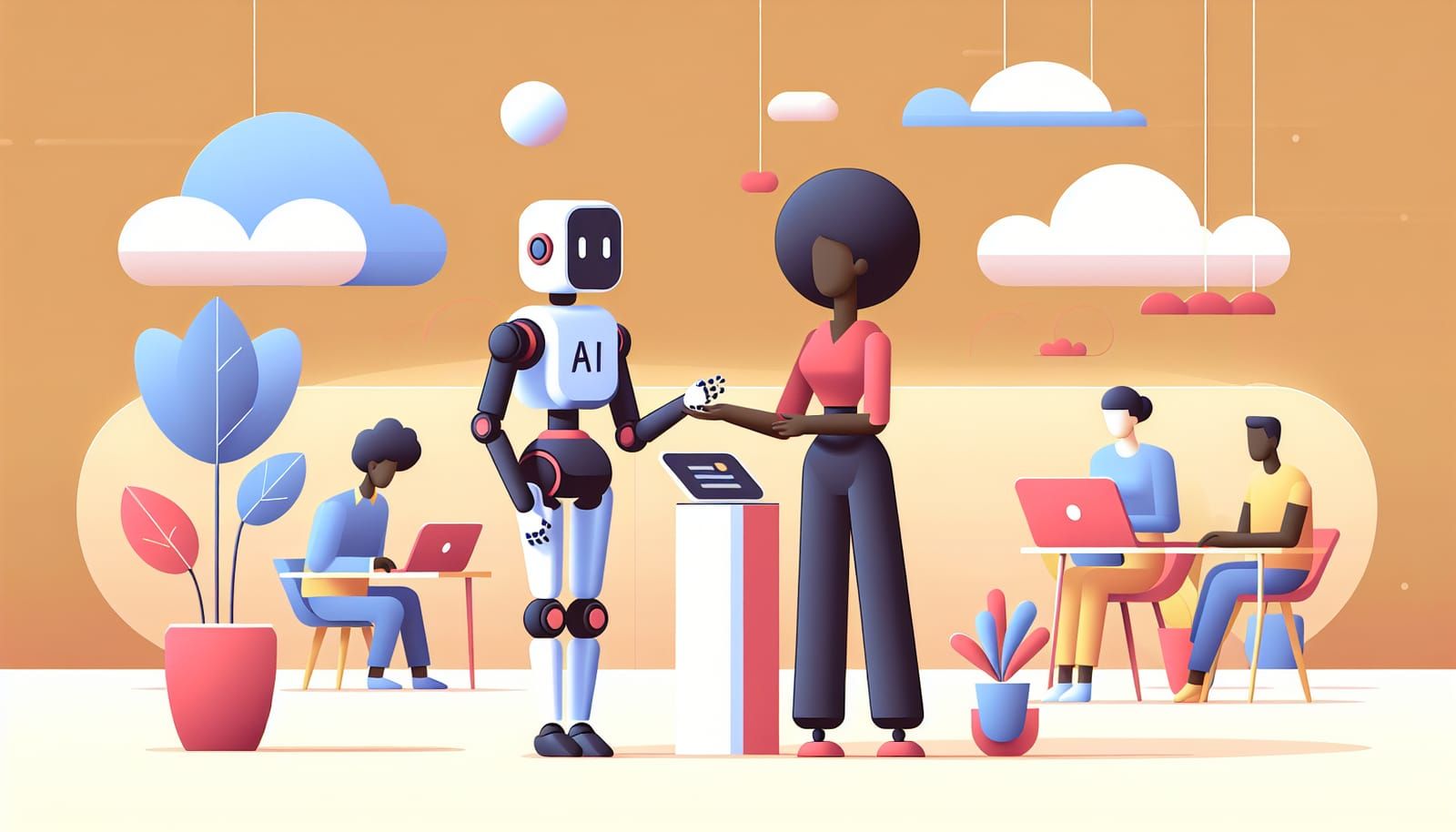In a world that seems to be racing ahead with technological advancements, artificial intelligence (AI) stands out as one of the most transformative forces of our time. From virtual assistants like Siri and Alexa to smart home devices that learn our preferences, AI is becoming increasingly integrated into our daily lives. But as we embrace these innovations, a pressing question arises: Will AI make us lazy, or will it free us to be more human?
In this article, we will explore both sides of the debate, showcasing how AI can enhance our lives while also cautioning against the potential downsides. So, let’s dive into the fascinating world of AI!
What is AI Anyway?
Before we delve into the implications of AI on our lives, it’s important to understand what AI actually is. Simply put, AI refers to machines or software that can perform tasks that typically require human intelligence. This includes things like understanding language, recognizing patterns, and making decisions.
AI can be divided into two main categories: narrow AI and general AI. Narrow AI is designed to perform specific tasks, like recommending movies on Netflix or helping doctors diagnose illnesses. General AI, on the other hand, would be capable of understanding and reasoning about the world in a way similar to humans. While we have made significant strides in narrow AI, general AI remains a work in progress.
The Case for AI Making Us Lazy
One of the main arguments against AI is that it may lead to a more sedentary lifestyle. With machines taking over tasks that we used to do ourselves, there is a concern that we might become overly reliant on technology. For instance, instead of cooking a meal from scratch, we can simply order food online. Instead of exercising our brains by solving puzzles, we can opt for AI-powered games that do the thinking for us.
This reliance on AI could result in a decline in critical thinking skills, creativity, and even physical health. The fear is that, as we become accustomed to having our needs met by machines, we might lose essential life skills and the motivation to engage in activities that promote personal growth.
The Case for AI Freeing Us to Be More Human
Conversely, proponents of AI argue that it has the potential to free us from mundane tasks, allowing us to focus on what truly matters: our relationships, creativity, and personal development. By automating repetitive and time-consuming tasks, AI can give us more time to pursue our passions and connect with others.
Imagine having an AI assistant that manages your calendar, reminds you of important events, and even suggests fun activities based on your interests. This could free up time for you to spend with family, engage in hobbies, or even volunteer in your community. Instead of worrying about household chores, you could invest more energy into creative endeavors or meaningful conversations.
The Balance: Finding a Middle Ground
The key to harnessing the benefits of AI while avoiding its pitfalls lies in finding a balance. It’s essential to use AI as a tool that complements our abilities rather than replaces them. For example, while it’s convenient to use AI for quick answers, it’s also important to engage our minds by seeking out information, asking questions, and thinking critically.
Education plays a crucial role in this balance. Teaching children and adults alike how to use AI responsibly and effectively will empower them to make informed decisions. By understanding the capabilities and limitations of AI, we can leverage its strengths while remaining active participants in our lives.
The Future of Work in an AI-Driven World
As AI continues to evolve, it will inevitably impact the job market. Some jobs may become obsolete due to automation, while new roles will emerge that require human creativity, empathy, and critical thinking. For instance, jobs in AI ethics, data analysis, and machine learning will likely see significant growth.
Rather than fearing job loss, individuals can embrace lifelong learning to adapt to the changing landscape. Upskilling and reskilling will be essential in an AI-driven world. By acquiring new skills and knowledge, people can position themselves to thrive in this new era.
Embracing the Human Experience
At the end of the day, AI should enhance our human experience rather than detract from it. It is crucial to remember that technology is a tool—how we choose to use it determines its impact on our lives. By fostering a mindset of curiosity and creativity, we can ensure that AI serves as a catalyst for personal growth and meaningful connections.
Imagine a future where AI handles the heavy lifting, freeing you to explore your interests, build relationships, and contribute to society in ways you never thought possible. Instead of fearing that AI will make us lazy, we can view it as an opportunity to reclaim our time and invest it in what truly matters.
Conclusion: A Bright Future Awaits
The debate over whether AI will make us lazy or free us to be more human is complex, with valid arguments on both sides. However, it is essential to approach AI with an open mind and a proactive attitude. By embracing the technology, we can harness its potential to enhance our lives, create new opportunities, and foster deeper connections with one another.
As we stand on the cusp of this AI-driven future, let us remember that we are the architects of our own experiences. By choosing to engage with AI thoughtfully and creatively, we can ensure that it enriches our lives and helps us become the best versions of ourselves.
In this brave new world, AI can indeed be our partner, not our replacement. So let’s embrace the possibilities and prepare for a future that allows us to be more human than ever before!
Remember, the journey into the future with AI is just beginning. Let’s step forward together, curiosity in hand, and discover what incredible opportunities await!


